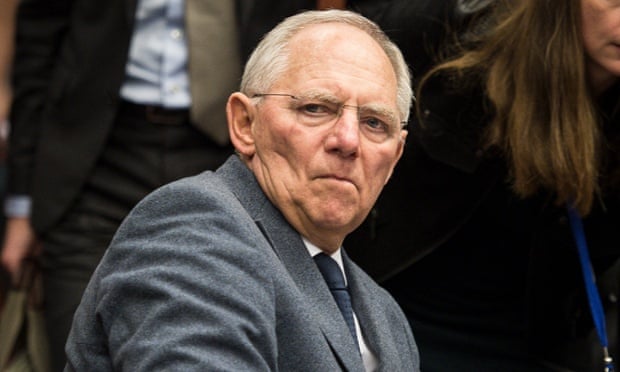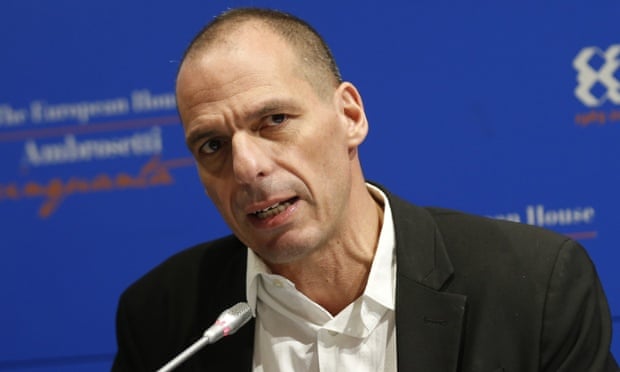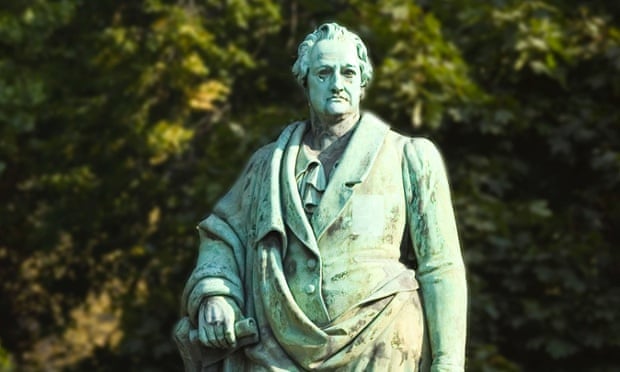Nick Fletcher Tuesday 31 March 2015
Officials attempt to secure bailout funds from creditors amid suggestions that proposals from Alexis Tsipras’s government are not detailed enough
Greece’s prime minister Alexis Tsipras is to give a briefing to the country’s parliament late on Monday. Photograph: Wassilios Aswestopoulos/NurPhoto/Corbis
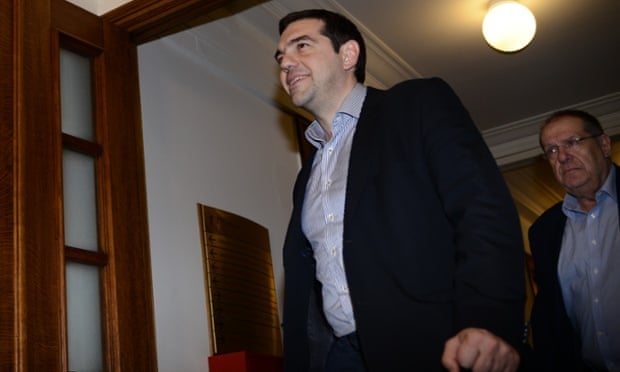
Greek officials were locked in talks with Eurozone creditors on Monday amid signs that the country’s list of reforms might not be detailed enough to allow a much needed tranche of bailout funds to be released.
The Greek government presented the reforms demanded by its lenders on Friday, but despite talks over the weekend, the two sides seemed no closer to an agreement. Without more aid, Greece could run out of cash before the end of next month, while a €450m (£329m) payment needs to be made to the International Monetary Fund on 9 April.
Margaritis Schinas, a spokesman for the European commission, said on Monday that the list of reforms still “required a lot of technical work” but the continuing discussions were “a positive sign that shows willingness and seriousness of all sides to constructively engage”.
The German chancellor, Angela Merkel, warned that Greece’s reform programme must “add up” as she insisted that Germany wants to avoid the country leaving the Eurozone. Speaking in Finland, Merkel said there could be some flexibility in the Greek government’s proposals, but added: “In the end, the overall framework must add up. We saw this in Ireland when a new government changed parts of the programme. But in the end the financial stability of the country must be restored. Greece is talking with the institutions now. We are waiting on these talks. And we will wait for the evaluation of the institution.”
Meanwhile, ahead of a briefing to the Greek parliament by the prime minister, Alexis Tsipras, late on Monday, more details of the reforms emerged. Greece is proposing to raise around €3bn (£2.2bn) of new tax revenue, including measures to fight tax evasion and VAT fraud, as well as higher taxes on alcohol and cigarettes. However, its lenders are concerned that it has not agreed to deliver reforms to pensions and the labour market.
Privatisations, including the Piraeus Port Authority, are designed to bring in €1.5bn (£1.1bn), about €700m (£510m) lower that the original target. But this plan has already caused friction among elements of the governing Syriza party, who want to stick to the original pledge to cancel any state sell-offs. Tsipras needs to tread a difficult path between the lenders and his own supporters, not least because Germany has insisted that the proposals be passed by the Athens parliament before any bailout money can be released.
In a further blow, the ratings agency Fitch cut Greece’s default ratings and unsecured currency bonds from B to CCC late on Friday, ahead of its next scheduled review on 15 May. It said: “Fitch believes that developments in Greece warrant such a deviation from the calendar. Lack of market access, uncertain prospects of timely disbursement from official institutions, and tight liquidity conditions in the domestic banking sector have put extreme pressure on Greek government funding.
“We expect that the government will survive the current liquidity squeeze without running arrears on debt obligations, but the heightened risks have led us to downgrade the ratings.”
The Greek situation continued to put pressure on the euro, which fell 0.65% to $1.08, while Greek 10-year bond yields rose from 11.04% on Friday to 11.16%. However, the Athens stock market edged 0.53% higher.
On the Eurozone economic front, the picture was brighter, with business and consumer confidence both picking up in March. Howard Archer, of IHS Global Insight, said: “A third successive, and markedly, increased rise in overall Eurozone economic sentiment to a 44-month high in March indicates that a more favourable growth environment in the Eurozone is increasingly being fostered by the much more competitive euro, low oil prices and major ECB stimulus. Consumer confidence across the Eurozone rose to a near eight-year high in March, while sentiment improved in most business sectors.”
![The [Greek] European Tragedy](http://3.bp.blogspot.com/-OSMAuv1xvEY/UUpsO5__BaI/AAAAAAAABsg/DZGqo9w12Ek/s920/GkBack_new.jpg)




 Copyright © 2015 AP. All rights reserved.
Copyright © 2015 AP. All rights reserved. 

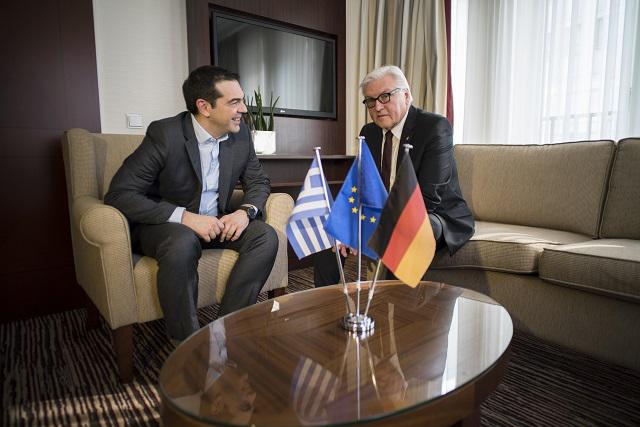
 Greece may need new loans to avoid bankruptcy when its bailout extension expires at the end of June
Greece may need new loans to avoid bankruptcy when its bailout extension expires at the end of June  Open arms: Foreign Minister Nikos Kotzias (L) had a warm welcome in Moscow in February
Open arms: Foreign Minister Nikos Kotzias (L) had a warm welcome in Moscow in February  The Greek prime minister, whose party's roots stem from the Communist party, visits Moscow in May
The Greek prime minister, whose party's roots stem from the Communist party, visits Moscow in May  Greece's historical ties to Russia are not just religious and go back to the birth of the modern state
Greece's historical ties to Russia are not just religious and go back to the birth of the modern state  Mr Karamanlis was rejected by voters a year after signing a gas deal with President Putin
Mr Karamanlis was rejected by voters a year after signing a gas deal with President Putin  Cyprus President Nicos Anastasiades signed a military cooperation deal with Mr Putin last month
Cyprus President Nicos Anastasiades signed a military cooperation deal with Mr Putin last month 

